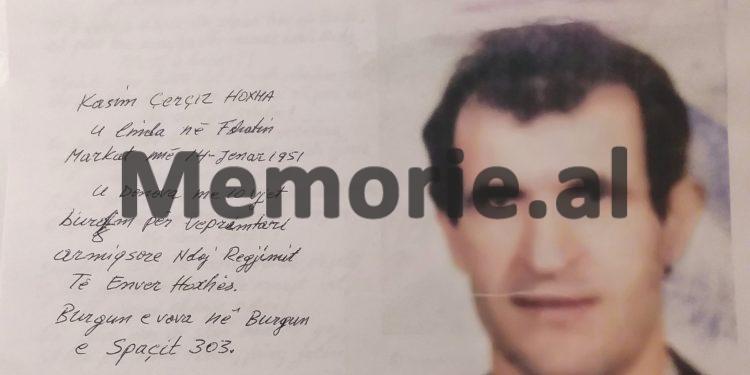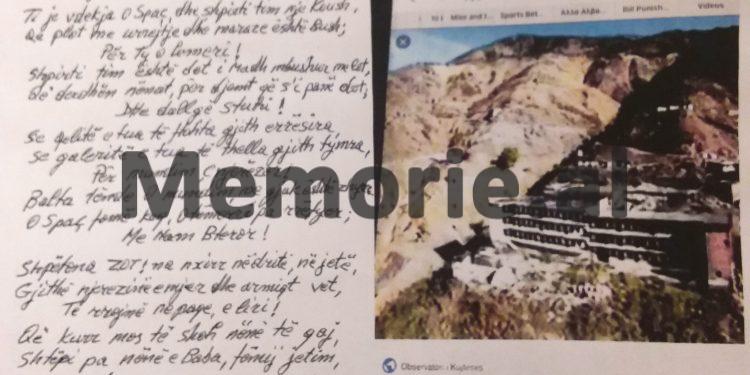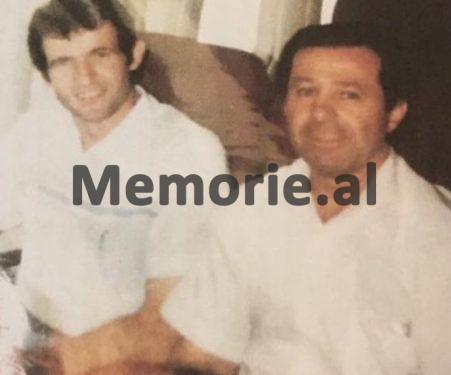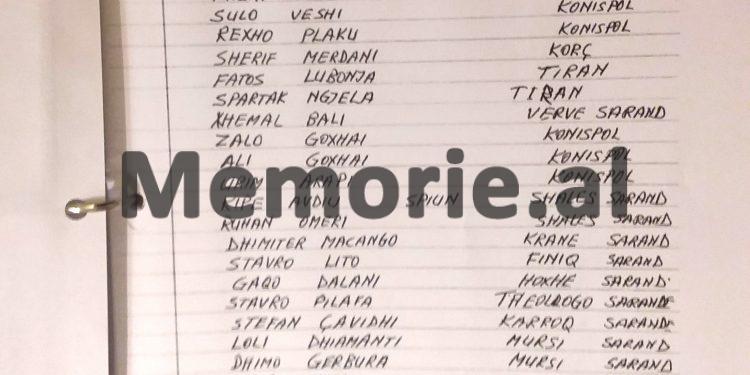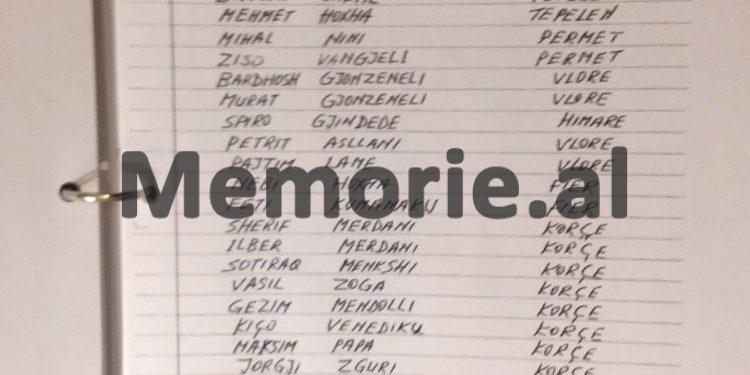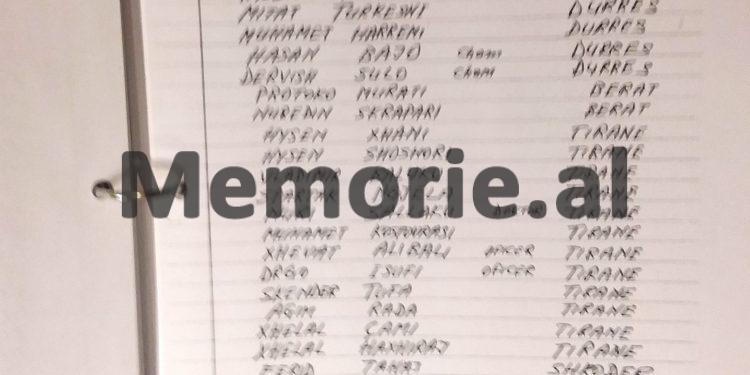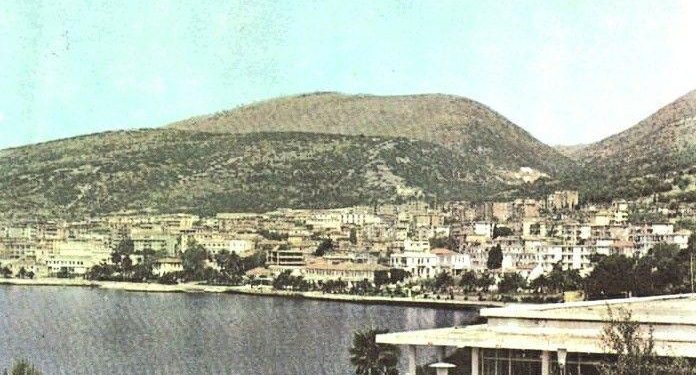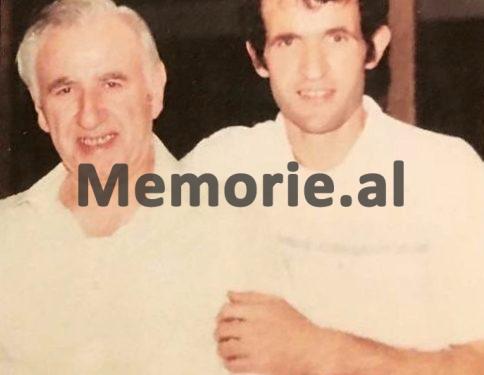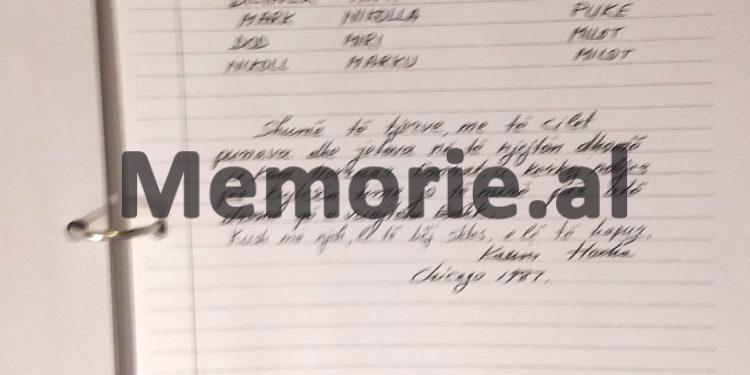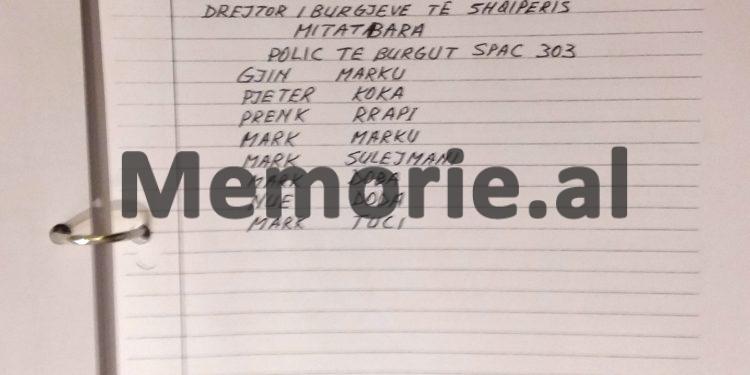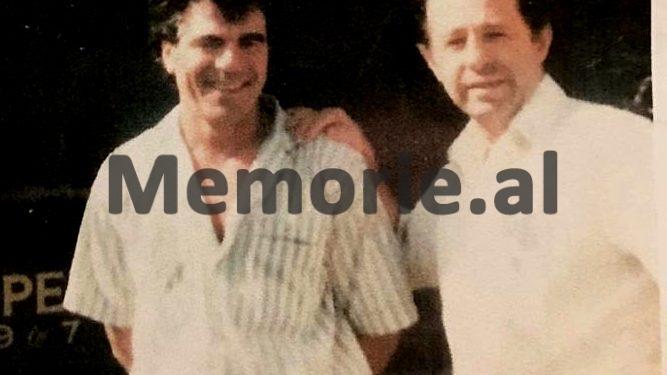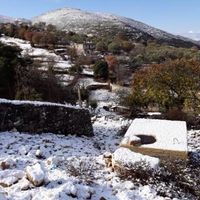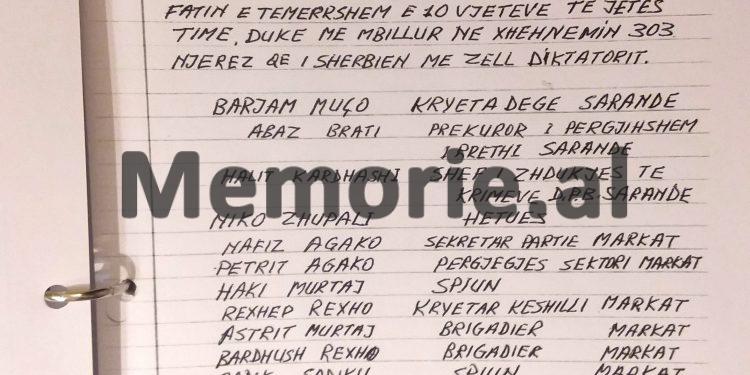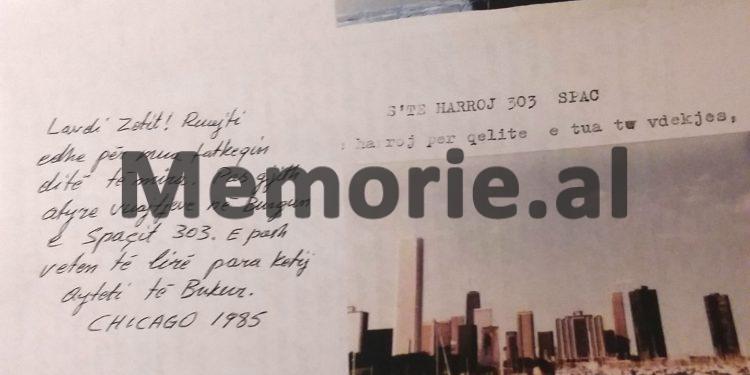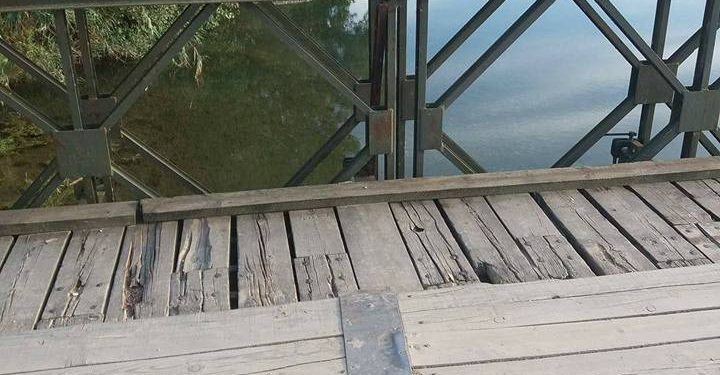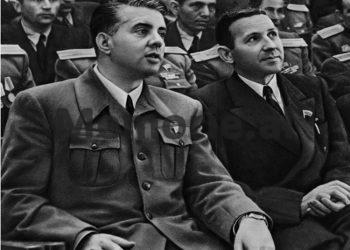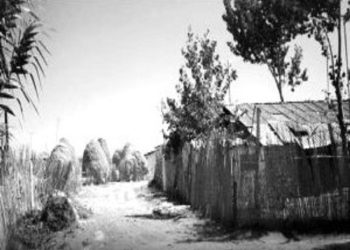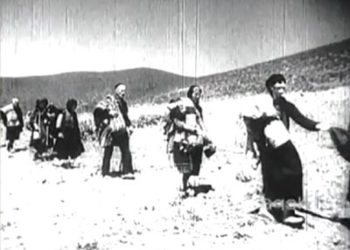Dashnor Kaloçi
The first part
Memorie.al publishes some parts of the voluminous autobiographical book in manuscript “Beautiful land, ugly people” (memories from hell) by the author, Kasem Hoxha, originally from the village of Markat in Saranda and living in the USA since 1985, when he fled Albania after suffering ten years in the prisons of Enver Hoxha’s communist regime. The whole sad and painful story of Kaso Hoxha, from the life and hard work in his village in the southernmost part of the country, the dissatisfaction with the regime and the first poems of a political nature, how they fell into the hands of the State Security and who were his relatives who spied on him, the arrest in the office of the Chairman of the People’s Council of Markat village, by the State Security on June 21, 1973, the investigation in the Saranda Branch of Internal Affairs, the trial against him and the sentence with 10 years in prison for “agitation and propaganda”, staying in “Kaushin” of Tirana (Ward 313), and the prisoners he found there, being sent to Spaç and working in that camp with criminal and “soft” police officers, the accomplices of description of their “portraits” with positive and negative sides, release from prison and return to the countryside, escape to Greece and stay in the Lavros camp, gaining political asylum in the USA, correspondence with Amnesty International, e London branch, inf information with the data he sent to the prisoners of Spaç and the communist regime in Albania, to the creation of a new family and life and work in that distant place with the Cham community divided by the intrigues of the people of the State Security from Albania operating there.
Excerpts from the manuscript book, “Beautiful land, ugly people”, (memories from hell) of the author, Kasem Hoxha, sent by him exclusively for Memorie.al
Prologue
Dear readers!
Do not pay attention to the title I am presenting to you, I mean, if you are not patient to read this collection of memoirs, if you want to forgive the author, that his style is pale, uninspired before this drama of great, of my people, of my martyred nation.
My characters are not created by my fantasy, but are real people, they are your brothers, your fathers, your relatives. The events are not fictional, but real and lived. You will convince yourself, only after reading this summary with memories. You will find something from your life, something real from the lives of your fathers, your mothers, your brothers, how they suffered and how they died.
I summarize this collection of memories for the legacy left to me by my friends, for the world to learn the truth about how they were tortured, how they suffered, how they died, innocent people, in the camps and prisons of the executioner, Enver Hoxha.
I go with the hope that any reader, Albanian or foreign, is not left with hatred, from criticism, beating opposing opinions, as it is the best way to find the truth. The title of the book, “Beautiful land, ugly people”, will anger the reader, but in the end, I will conclude that I have the right to call the 45-year era of the satanic communist regime of Enver Hoxha “ugly” “.
I, alas, for the misfortune I had, saw and lived the great drama that happened before my eyes. I am neither a poet nor a speaker, I will need a lot of work to escape the literary mistakes in this historical book, which can inspire future poets and writers, on the tragedy of our time, of the darkest time of my nation .
Ladies and Gentlemen, I wish you all freedom and peace…!
Kaso Hoxha.
Llavrio, Greece 1985
Life in the village of Markat in Saranda and arrest by the State Security
Thursday 21 June 1973
At 5 o’clock in the morning, I was disturbed by the screams of the village tellal. The mother who was in the yard replied, “He said, ‘Kasua, before I go to work, show up at the council office.’ I did not wait for my mother to come and wake me up as usual, caressing me, begging me to get up because my work schedule was coming at this morning. I could hardly sleep at this hour of the morning, in the summer season. I felt tired from the hard work.
It was the wheat harvest campaign, the whole cooperative started work without sunrise and returned home when it got dark, as many times the Village Party ordered the villagers to sleep in the field, to work until late at night. Trouble, fatigue, poverty. People only worked for one bite. My flower, the eldest daughter, three years old, woke up terrified from sleep. She cried, looking for the grandmother who loved her so much, because her grandmother also loved her very much.
When Luljeta was born, unfortunately Mejdie, no milk came to the east to feed the baby, we did not have cow’s milk to feed, because the cows were taken from us by the cooperative and in the village shop, you could not even find canned milk. The mother would take the weeping baby in her arms, and she would go from door to door in those houses where she was breastfeeding, begging them to feed the dying starving baby. Lesko’s nephew, many times when he returned from work, knocked on the door for the mother to take the baby out to feed, before feeding her children. The mother used to give a thousand blessings to this woman, and just as many kisses, before they parted. Luljeta cried so much, Mejdije did not shake her head because the hungry baby was crying, that she was unaware of the children growing up, that she was a baby in her own right, until she was 17 years old. The mother dealt with Luljeta all day, to stop her crying, the mother lied to the baby by putting her already dried and slippery breast in her mouth. Surprisingly, after a few weeks, milk began to flow into the old woman’s breast. The village was amazed by this miracle and luck of Luljeta, now the grandmother was the mother for her. (At this time I was a soldier).
(Now let me return to the narrative of this day, wishing that we do not lose patience with the reader, but for such explanations I say that they are necessary, for the character of the book).
Crying, Luljeta went down the stairs, looking for her grandmother, looking for me too. The mother ran inside, grabbed him by the arm, caressed him and, kissing him, asked him what he was crying about. She did not stop, saying through the sentences: “Father, father”.
Putting on my shirt, I went to the door of the mantle, (out of exhaustion, that night I lay down for a while in the bed of my father, who had died a few months ago and fell asleep talking to my mother, she felt sorry for me and did not play from there), I do not know why it made me nervous and cry all Luljeta giggle. I shouted at him, but until that day I had never beaten him, saying: “Palaço, rest”! She was looking at me scared, she must have had a scary dream, but the baby was not able to tell it. “Do not insult my daughter,” my mother threatened, “leave because they want you in the council office,” she said, shocked and worried, because she knew that in that office they would not ask you for good. In this office give an account, or pay.
Before leaving, my mother begged me to drink a glass of milk, which she had put on the ladder, and asked me if I had done any harm to the cooperative, and I nodded in response. An ominous premonition had plagued my whole being. The media had left before daybreak, at work, because she was working on transporting bundles of wheat to the milking machines. This work was done early in the morning, because the straw was soft from the dew, and did not crumble during transport. In the manzato (called in our area the rooms on the ground floor of multi-storey houses) under the hearth, opposite the door, was the cradle of Nderime, the other girl who had just turned six months old.
She was awakened by Luljeta’s screams. Her plump pink bumps, big eyes, gave her the look of a doll. I loved this baby, I felt pleasure, I got tired when I played with them, my love was equal, for both, (I became a father when I was 18), I did not listen to my mother to drink the glass of milk, but I approached you cradle, I fell to my knees and caressed Nderime under her arm, I kissed her, but she did not react as usual to laugh and play with me. As I was leaving the door, she raised her hands, tried to say something, uttered some nonsense syllables and sounds. When I crossed the threshold, she started with all her might: “Father, father, father,”, was the first word she learned, maybe this morning, this word for Honor, also meant “goodbye”!
I went out into the yard, surprisingly, my dear cat, who waited for me at the gate every evening when I returned from work, and escorted me every morning with a caress, this morning was anxious! She meowed nonsense, I rubbed her to calm my cat, but she did not stop her wailing meow. Mother was standing on the doorstep with Luljeta in her hand. The chickens that his mother had just released from the coop were collecting the crumbs of bread he had thrown at them on the courtyard slabs. My black chicken did not eat, it was clinging to a fig branch, it was sitting like a cockroach, as if it were sick. This was my chicken because I found it in a forest far from the village, it would surely have escaped the fox, or owl, it had become like wild, it took me some work to catch it.
The villagers were amazed at my prey that day. The mother kept him tied up for a few days, she calmed down very quickly. My chicken, when he saw me coming out in the yard, sang like a rooster, bad omen, ominous sign. My mother told me to scare her to rest, but I did not disturb her peace, I could not stop what was happening. Also, the donkey, a wise and obedient creature, kept its head down on the ground, spitting saliva from its mouth, as if it had eaten poison. I asked my mother what was wrong with the donkey sitting with its head down, the mother shrugged, she understood these ominous signs, but her heart could not express them.
I closed the big gate of the courtyard, took the road that leads to the center of the village. Roads full of stones, all ridges, all trunks of donkeys and horses. Road so dear, my bare feet had trodden thousands of times over every inch of this road and over every stone. A lively road, a road of groans, of laughter, of tears, of troubles, of hardships, everything for me went to this road. I loved this road, as it once was, before. The tired, sleepy villagers, after milking that drop of milk, are taking the cattle out of the calibers, the cribs, to the village shepherd. I paved the way for the cattle, the children accompanying the cattle greeted me. I was walking and my mind was working on what they could love me for in the Council office! I was sure I had not done any harm to the cooperative, nor had I quarreled or offended any cadres.
The day before, I was working behind the harvester in a field called “Selihak”. I do not know why my brigadier, Shamet Kapo, privileged me, or they did it to have me better under control. Lunch, I ate with my sister, White, sitting on the edge of the field, under the scorching rays of the June sun. The jar of sourdough (buttermilk) that my mother had put in the bag had broken down and turned into whey. My sister begged me to eat the whole piece of spinach pie she had for lunch, but I refused, I ate the piece of dry bread.
Two “Jeeps” of the Internal Affairs Branch were walking on the sidewalk towards the village, raising a cloud of dust in the back.
- “What do these disbelievers want?” asked the sister not taking her eyes off the cloud of dust that had caused the black Jeeps of the Home Affairs Branch.
- “It’s their profession,” I told my sister. As I was walking down the road to the center of the village, my mind went to the jeeps I saw the day before. Something is contrived I thought, of course something bad. When I got to Mother Abos’s plates, I was full of memories of my childhood. This stone board gathered the children of the two neighborhoods, we played, slid on this sloping slab, so that the pants were torn to pieces, every night when my mother came home from work, she reached for my pants, putting a new one on top of the old one.
I stood on top of this tile overlooking the square in front of the shops, in the center of the village. Two black “Jeeps” were parked in this square full of stone, five policemen in dark blue clothes, patrolling separately, from the square up the stairs leading to the house of culture, near which in both the wings are the offices, that of the Council, of the Presidency, of the Account and that of the Party.
The villagers rush to work with the sickle and the bag of bread on their side, they stopped scared when they saw this scene of a siege, some changed their ways, some who did not open their heads fell in the middle of this siege.
I looked around, noticing that the policemen were not alone, in the distance, on the street corners above the shore and in the ponds, patrolling armed Party men. Nafiz Agako, the secretary of the Village Party, Zijadin Kakaci, Duro Murataj, who walk parallel to me narrowing the siege. Now I was clear that everything was against me. In such critical moments, everyone wants to escape the danger, but for me now it was too late to make an attempt.
I gathered myself, made my heart stone, saying to myself: “Kaso, except slavery, you lose nothing, what will happen, it will happen, go ahead”!
Walking towards the Council office. The look of the cops, of the armed Party men, was from me, the look of beasts waiting for their victim to fall into the trap. I do not know, or it seemed to me like nature, the village, and everything had changed this morning, June 21, 1973.
I knocked on the door of the Council office: “enter” – said the Chairman of the Council, Rexho, whose voice I knew as well as the owner knows the barking of his dog. This man is the most negative character in the life of my village. I am not able to make the portrait of this man, to describe the character of this negative type, my conscience is not close enough for banality to come out of my mouth and pen, but I can say this: that this man was hated by the whole village. In addition to his function as Chairman of the Council, he was also a brigadier. It burst the spirits of the brigade members. His meter was 10-15 cm. bigger, ate in the graft and sighed from the sweat, beat, of the peasants. Woe to those peasants who had the misfortune to be in his brigade, many of whom returned home in the evening without a day off. This dinosaur wrote, sealed.
I opened the door, stood up in front of the table, waited for the Chairman of the Council, and by the window overlooking the shops, sitting in a chair, was a fat man with a dirty black mustache and sunglasses, which seemed to give him “prestige”. And the importance of his person, in this uncivilized and poor area. His gaze was focused on the center of the village. On the table, a black bag, half open, with some folders and a pair of bars, left there, probably on purpose. Quietly – calmly, as I entered I greet them.
- “Good morning,” the Chairman of the Council replied, and the man who was sitting, who was still trying to pay attention to himself, did not even look away from where he was. In a very pompous manner, with all delicacy, he threw his foot on the ground, took the cigarette that was almost burnt in the heel, shook the ashes, inhaled it a couple of times, taking the smoke out of his mouth in style. In all these actions, he tried to imitate the detectives of police films.
- “Why did you call me…”, he failed to finish his speech, the door opened, the Security Operations Officer of the area entered, an average man, a brunette, who was always dressed in civilian clothes. Meanwhile, the big man, sitting by the window, rolled over, removed his halves to look better, gesturing to the Chairman of the Council to come out.
- “Yes, we wanted a little” – he continued the word left halfway by the Chairman of the Council. This man’s lips were bright red, his neck all fat side, his big belly, spoke of a good, very comfortable life of this man, whom I did not know.
- “Are you Kaso Hoxha”? He asked gravely.
- “Yes,” I replied.
- “Which friend do you have”? – He continued
- “What kind of friends are you talking about?”
- “I want to tell you,” he continued, “that if something happens, or someone escapes, you should know that it weighs on your back, so tell us about everything you know without wasting time.”
- “Friends, I have the whole village, sir, can you tell me who you are? “When I have not seen you.”
- “Hee!… Right?… You will not speak, do not worry you will know me well”,
You sniffed it out of anger, took a folder with a gray lid out of the bag, put it in front of me.
- “Sign this!” – ordered all the rage.
- “It is a decision issued by the General Prosecutor (Dhori Panariti) for your arrest, you are accused of hostile activities against the Party and the popular power”, – he concluded, extending a pencil to me to sign.
- “No! Mister! – I do not sign my death, my children ask me, they need me, I love them, I have obligations like all parents to the family. You with the firm that you want me to put, you do not kill only me, but my whole family, all my relatives “- I objected.
- “Leave them alone, if you wanted you would not oppose the policy of the enemy party! Will you sign or not? I have no time to deal with you! ” – Halit K. shouted and his neck veins were swollen with nervousness. (Halit K., investigator of the Internal Affairs Branch).
- “Stinky enemy!” – he cursed loudly, spewing saliva along with the words.
- “Yes sir, one of us is an enemy of the People!” – I objected, not considering that I would pay with my life.
- “Shut up, shut up, I’ll break my ribs!” – he shouted, approaching trying to hit me. I did not play from the place where I stood, I looked at this filthy face with hatred, this “beast” that it was now too late to escape his nails and these other soulless beasts.
I remembered the advice of sisters Vito and Bardha, who always said to me: “Do not Kaso, aman do not speak, do not write, they will rot in prison”. I did not listen to either the sisters or the parents. I did not agree with slavery, with my misery, with the misery of my people, I had nothing to lose but the rags that hung on my body.
- “Tie the dog!” Ordered, the Security Operative standing behind the door, ready to carry out the orders of his superior. He took the irons out of the black bag, the two “beasts” grabbed me by the hands, used them with all their might, turning them from behind my back, inserted the irons, tightening them to the last screw. After a while, my hands became numb because the blood flow stopped. The pain was unbearable, but my heart was more iron than theirs.
- “What do you have at home, anything forbidden?” – asked bark- madhi. I did not know the name of this man, but I had heard that the Security Investigators were Niko Zh., Halit K.
- “What forbidden thing are you talking about?” – I asked and my mind went to those few writings in verse, which he had called the summary: “New years, dark days”. There I collected writings during the day and at dinner I threw them in the big notebook, I hid this notebook in a secret hole in my closet, where neither my mother nor my wife knew. If they could find it, death awaited me. Almost all the verses had a political character.
Especially the verses “I hate you” and “The kazmaxhiu song”, in others there was only sarcasm about the regime. A few months ago, someone stole my notebook and I was not 100% sure, but I knew that the day I lost that notebook, I had Haki Fuat, my aunt’s son, by my side. There were few articles in the block expressing hatred for Enver’s Party, glorifying the Teme Sejko Group and Tahir Demi. These materials were enough to make me addicted.
- “Do not have weapons or other materials, it will be easier for you to tell us, before we find you!” – continued the big belly./Memorie.al
Continues tomorrow




